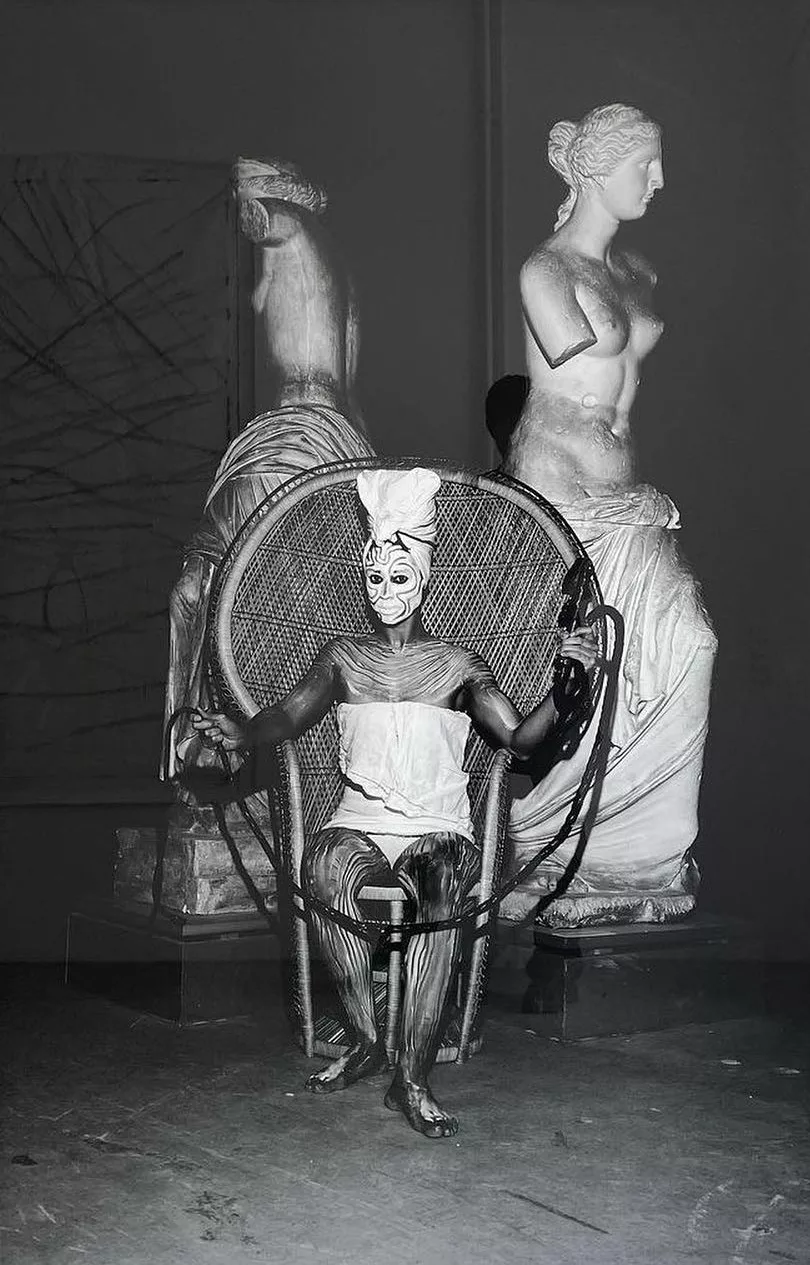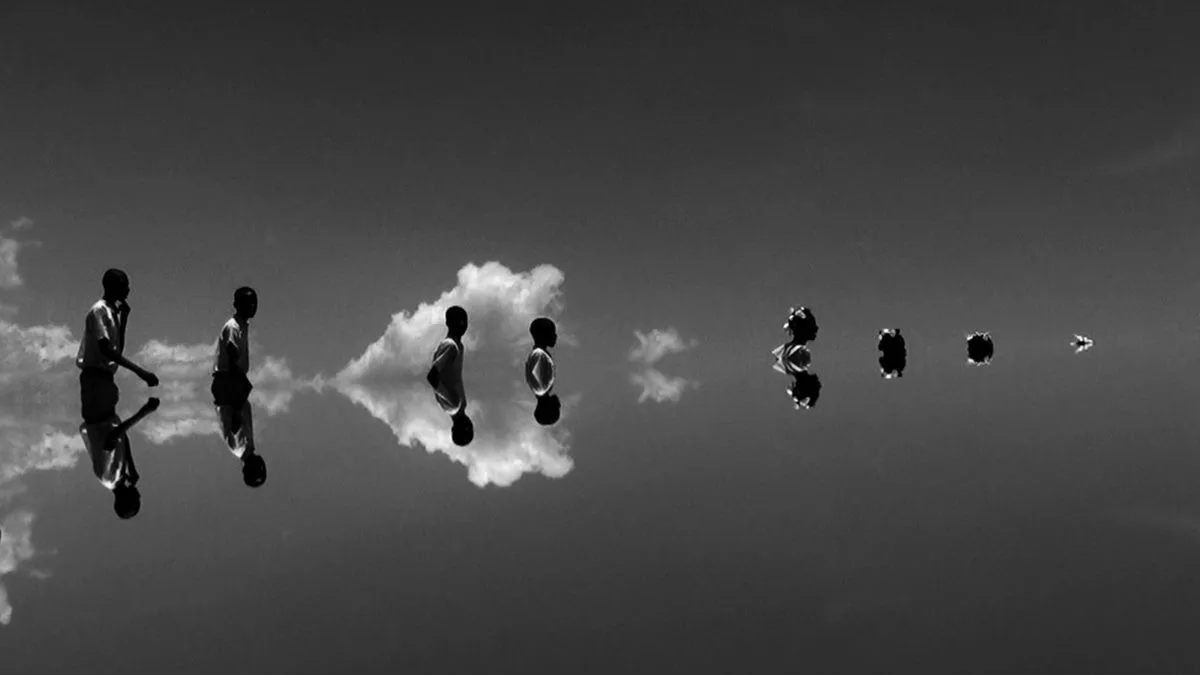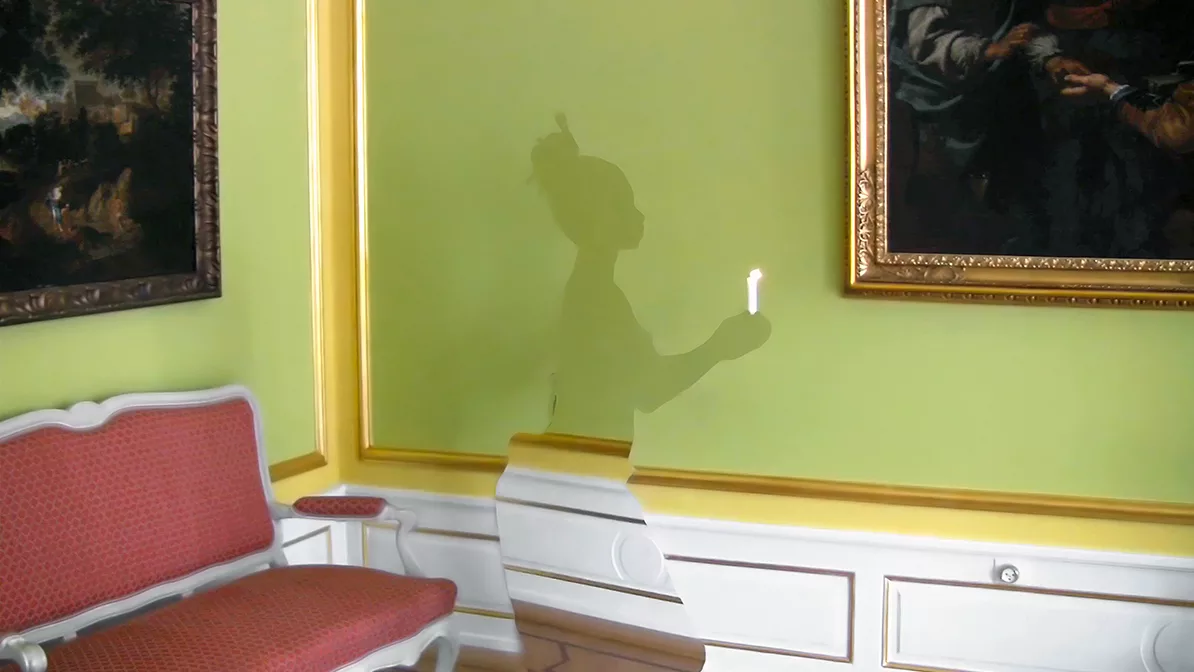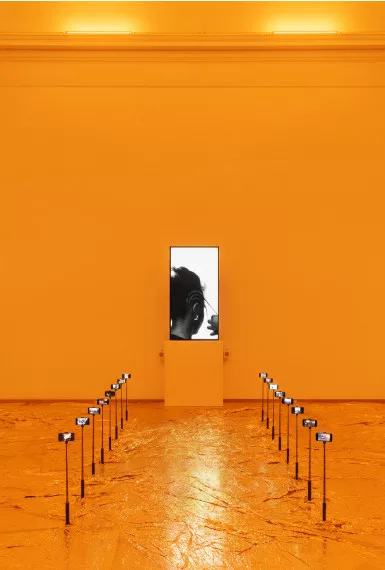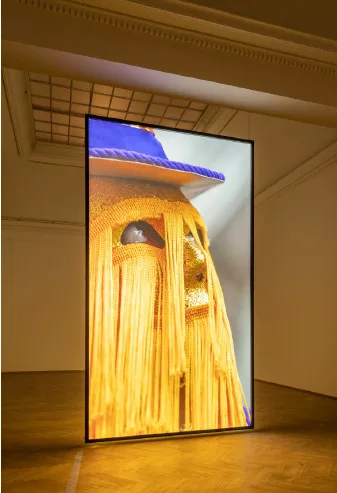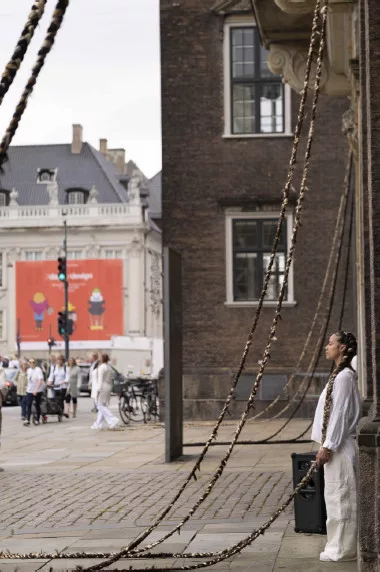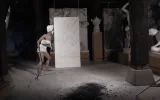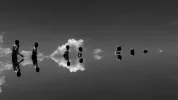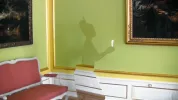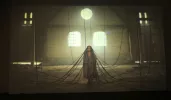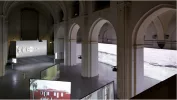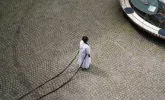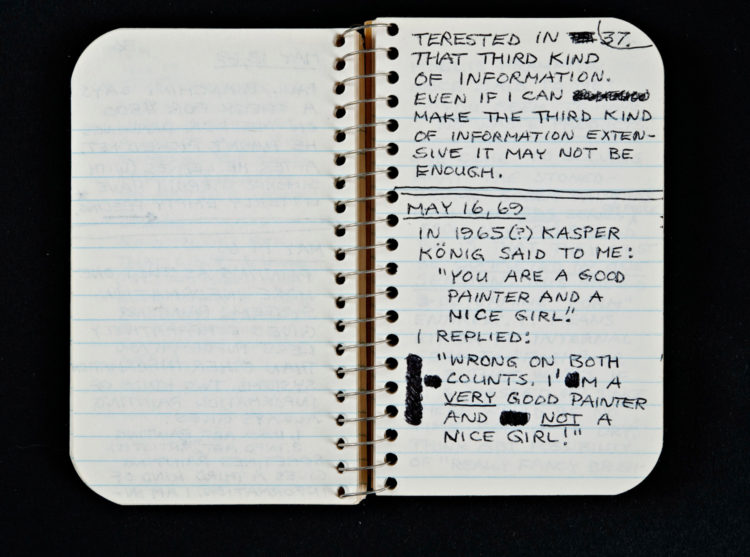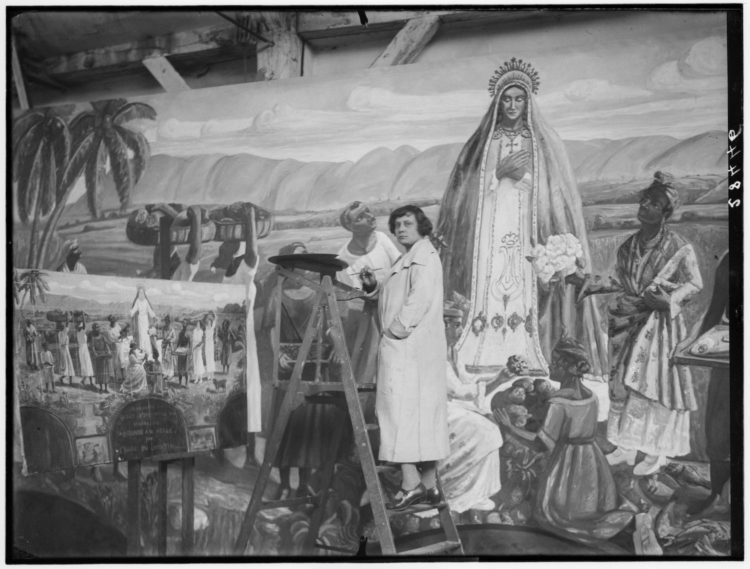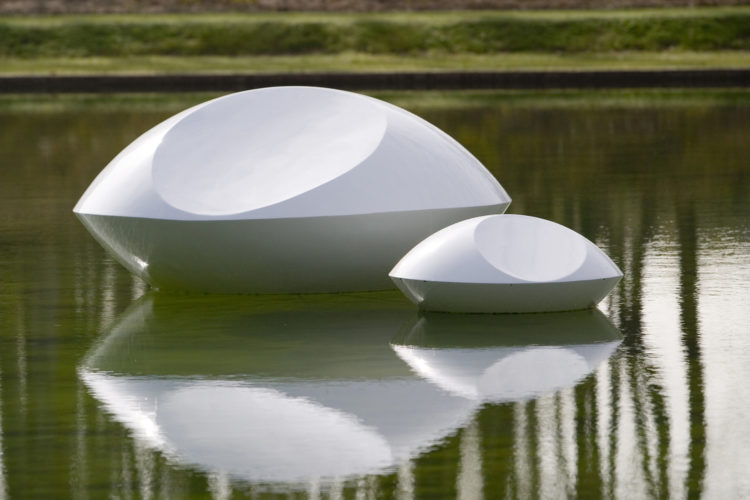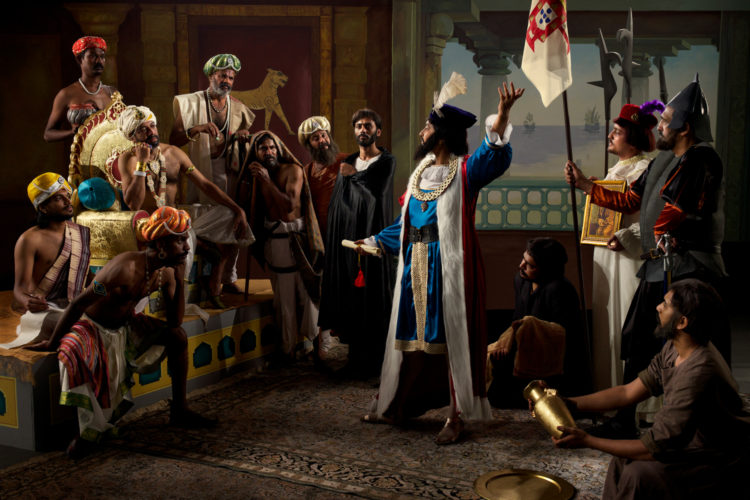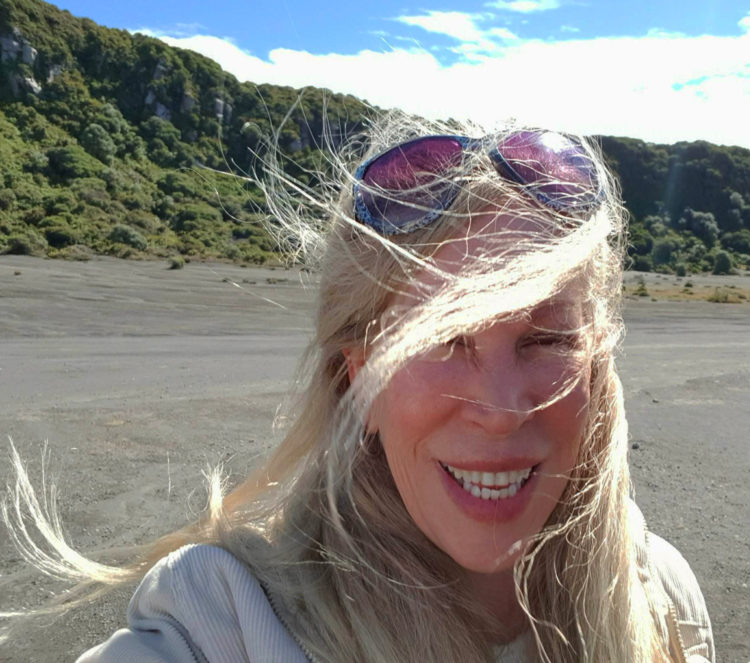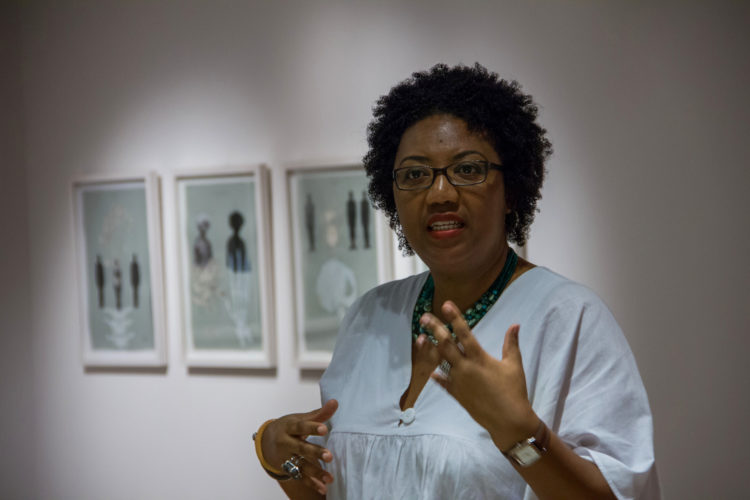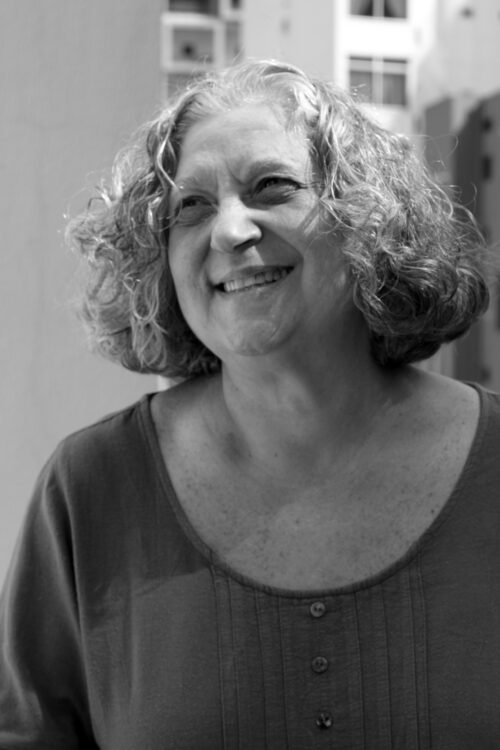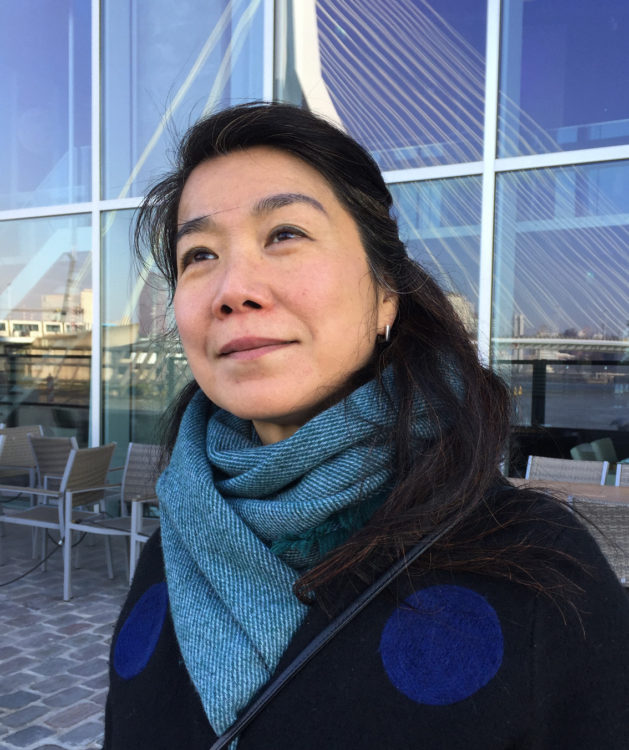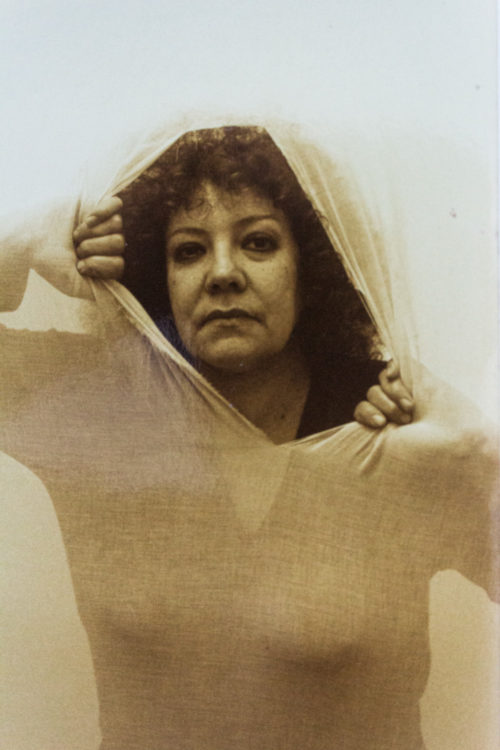Jeannette Ehlers
Petersen, Anne Ring, “‘Say It Loud!’ A Postmigrant Perspective on Postcolonial Critique in Contemporary Art”, in Schramm, Moritz, Sten Pultz Moslund, and Anne Ring Petersen (eds.), Reframing Migration, Diversity and the Arts, New York, Routledge, 2019, p. 75–93
→Cramer, Nina, “I Am Queen Mary: An Avatar in the Making”, Peripeti, no. 29/30, 2018, p. 147-155
→Løvholm, Lotte, (ed.), Say It Loud! Copenhagen, Nemo, 2016
Archives in the Tongue: A Litany of Freedoms, Kunsthal Charlottenborg, Copenhagen, 11 June–7 August, 2022
→Take Root, Museum of Contemporary Art Detroit, Detroit, 5 November, 2021–30 January, 2022
→SAY IT LOUD!, Nikolaj Kuntshal, Copenhagen, 15 March–31 July, 2014
Trinidadian-Danish multidisciplinary artist.
Born in Denmark to a Danish mother and a father from the Caribbean Island of Trinidad, Jeannette Ehlers was shaped by a multicultural upbringing that sensitised her to issues of racial identity, systemic injustice and the legacy of colonialism. She completed her formal education at the Royal Danish Academy of Fine Arts in Copenhagen, graduating in 2006.
Living and working in Copenhagen, J. Ehlers became acutely aware of the pervasive gaps in the Danish collective memory regarding the nation’s colonial past and its role in the transatlantic slave trade. This understanding is intrinsically tied to her artistic practice, as it interrogates the social impact of historical amnesia and cultural narratives. As such, the artist creates works functioning as remembrance and protest, bringing marginalised modes of being into focus.
The piece Whip It Good is an exemplary work, illustrating J. Ehlers’ method of historical confrontation. This was first staged as a performance in 2013 for BE.BOP 2013 at Ballhaus Naunynstrasse in Berlin and later recreated as a video installation in 2014, filmed at Copenhagen’s ‘West Indian Warehouse’ – a former colonial storage site. In the performance, J. Ehlers whips a white canvas with black charcoal, echoing the violent punishments endured by enslaved people. The act becomes a viscerally haunting ritual, an aesthetic remembrance. Through this work, the artist forces a re-engagement with Denmark’s colonial violence, inviting critical reflection on its enduring implications in contemporary society.
In 2018 J. Ehlers co-created the public sculpture I Am Queen Mary together with American artist La Vaughn Belle (1974–), who hails from the U.S. Virgin Islands – territories that were formerly colonised as part of the Danish West Indies. The monumental sculpture, standing seven metres tall, pays tribute to Mary Thomas (1848–1905), a key figure of the 1878 workers’ revolt on the island of St. Croix, then a Danish colony. The appearance of Queen Mary is modelled through a composite of the two artists’ own likenesses, symbolising the trans-Atlantic diasporic ties. The sculpture visually draws upon historic monuments in both scale and posture. Queen Mary is seated as royalty on a cane sugar throne and wielding a torch and cane bill – the tools of labour and resistance. The monument employs the civic plane as a space for Black empowerment and history. Significantly, it is the first public sculpture of a Black woman in Denmark, and as such, it marks a transformative moment in the country’s understanding of its colonial legacy.
J. Ehlers further explored these themes in the exhibition Archives in the Tongue: A Litany of Freedoms, at Kunsthal Charlottenborg, Copenhagen in 2022, which consisted of photography, film, installation and performance. Central to the exhibition was the figure of Moko Jumbie – a mythical, stilt-walking guardian spirit derived from West African traditions and brought to the Caribbean through enslaved people. Embodying the Moko Jumbie herself, J. Ehlers invoked ancestral ties, linking diasporic memory with contemporary modes of expression and storytelling.
J. Ehlers’s artistic practice is a major contribution to Danish discourses on colonialism, race and cultural memory. Her multidisciplinary work forms vital spaces for Black feminist and decolonial perspectives within European contexts, challenging cultural and institutional norms and prompting both public and scholarly engagement with histories often consigned to silence.
A notice produced as part of the TEAM international academic network: Teaching, E-learning, Agency and Mentoring
© Archives of Women Artists, Research and Exhibitions, 2025


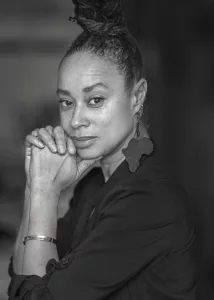
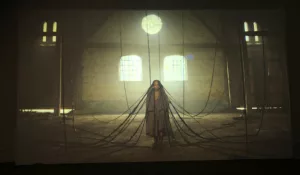 Jeannette Ehlers: Archives in the Tongue: A Litany of Freedoms, Kunsthal Charlottenborg, 2022
Jeannette Ehlers: Archives in the Tongue: A Litany of Freedoms, Kunsthal Charlottenborg, 2022 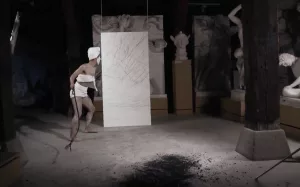 JEANNETTE EHLERS. WHIP IT GOOD. COMMISSIONED BY ART LABOUR ARCHIVES, Art Labour Archives, 2014
JEANNETTE EHLERS. WHIP IT GOOD. COMMISSIONED BY ART LABOUR ARCHIVES, Art Labour Archives, 2014 